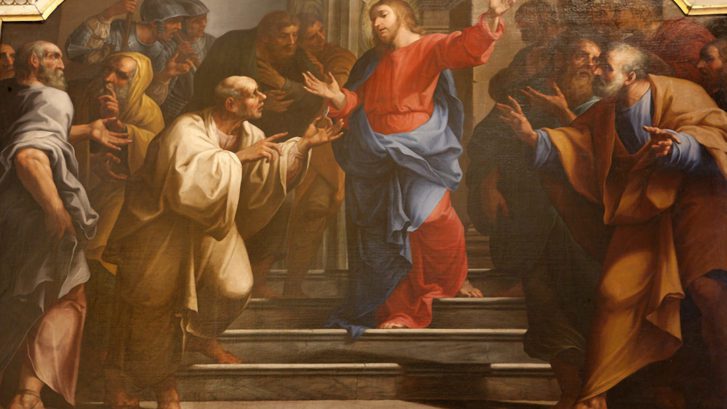A man in his 30s came to St. Christopher’s Inn seeking help. He was a lawyer, and appeared successful. I asked him what made him come into treatment, and he replied that he been drinking for years and years. Some people held an intervention for him, he listened well, and said he would cut down on his drinking, but he never did.
He lived in a beautiful home, with one of the few houses in the area that had a pool. His eight year old son always had his friends over to play. One afternoon, as he was starting to drink, he noticed how quiet it was, there were no kids around. He asked his son, where are your friends? The eight year old looked him straight in the eye and said, their parents won’t let them come anymore because of the way you are: the drinking, the shouting at mom and me, and the falling over.
The man told me he had listened to all the professionals, he had made promises that he never kept, but it was that five minute conversation with his little son that changed his life. It was a conversion experience: he reached a moment of truth.
The same thing happened in the Gospel. Jesus only gave us two rules to live by: love God and each other. He gave them in response to a question. We are told that the question was asked by a scribe. A scribe in those days was roughly equivalent to a lawyer. This incident comes right after some very unpleasant and hostile encounters
Jesus had with the Pharisees and the Sadducees, and they did not come off too well.
These opposing religious parties hated each other and had only teamed up to make Jesus out to be unfaithful to the religious traditions of the nation. The scribe is a front man who has been hired by the opposition to embarrass Jesus. The scribe is told to ask Jesus a trick question, an endlessly debated question, one that the rabbis and the lawyers had puzzled and argued about for centuries: of the 613 laws that Moses had given to the people of Israel, which was the greatest?
No matter which one Jesus picked, what answer He gave, He was bound to offend some group. It is obvious that the scribe is coming from deceit and not sincerity, with the Pharisees and the Sadducees who put him up to it silently standing by, delighting in the dilemma. They have done this all before. Remember the woman caught in adultery? Or when they asked, is it lawful to pay tax to Caesar? Always trying to catch Him out, and make Him look foolish.
This time, Jesus gives the scribe such a stunning answer that it catches him in the middle of his conscience and fundamental decency. You can almost sense it after Jesus’ reply. There is a long period of silence as the scribe stands there struggling between his loyalty to his party bosses, and the insight and rightness of the truth that he had just heard from the teacher who looked at him, not with triumph , but with love and compassion.
The scribe reaches his moment of truth. He turns his back on the establishment and he says slowly to Jesus, you are right in saying that the love of God and the love of neighbor are more important than all the burnt offerings and sacrifices one could make. And then the scribe heard wonderful words from Jesus: you are not far from the reign of God. And that is all we ever hear of the scribe. We are not told what happened to him, whether he lost his job, we just do not know. But the Gospel clearly means to pass on to us a story of conversion.
The scribe moves from deceit to sincerity. The scribe lets his basic decency, so long overshadowed by ambition and self-service, become active once more. His encounter with Jesus brought him back to the center, and restored his integrity. All the debates and tricky questions he was so good at simply became secondary to the realities of the truth he had just heard from the lips of Jesus.
Many of us lead hectic lives: we have careers, projects, programs, hobbies, agendas, schedules, and more, and all these things are good. Once in a while ask yourself, does coming here week after week make any difference in my life out there? How do I treat those at work, at school? How do I tend my neighbor? Do I ever comfort the sorrowing?
Do I every visit the sick? Do I ever care for anyone other than myself?
Remember the words of the scribe: to love God and your neighbor as yourself is worth more than all burnt offerings and sacrifices. This Gospel reminds us all of that profound truth, a truth we must never forget. And if we learn this truth, like the man with the young son, like the scribe, we will have our conversion moment. Then we are not far from the reign of God.


